Creatine is an organic compound that occurs naturally in muscle cells and assists us in building muscle and improving muscle strength. Because of its muscle-enhancing superpowers, creatine is also commonly taken by athletes, body builders and avid gym-goers in supplement form.
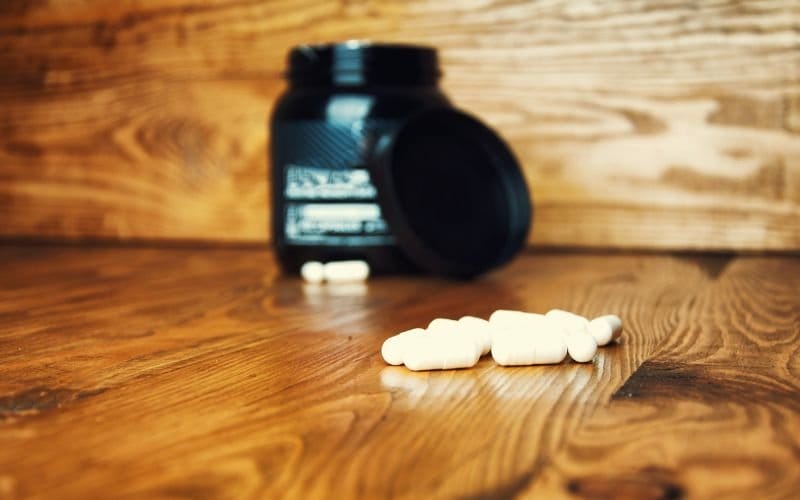
This could be in the form of creatine powder, liquid creatine, or pills or capsules.
It’s commonly understood that creatine is an excellent building block in the process of increasing muscle mass and definition as well as improving general exercise performance, and therefore, many people are happy to take creatine supplements right off the bat.
Not many people know how it can affect the body in other ways though, so before you commit to a supplement subscription, it’s worth delving a little deeper!
The short answer to this question is no. Taking extra creatine supplements will not increase or decrease your testosterone production. This means that, luckily for you, you can go ahead with your supplements without fear of sprouting new carpets of chest hair or your voice dropping an octave.
One of the impacts creatine has on the human body is that it helps to regenerate the adenosine triphosphate (or ATP) in your cells.
ATP is a chemical that helps to transport energy around your body. Increased creatine levels above the natural creatine store in the body will result in increased ATP efficiency and subsequently greater physical performance and muscular performance.
This enhanced energy production in turn leads to increased muscle strengthening and building, which is why creatine is linked to muscle gain and used for that purpose.
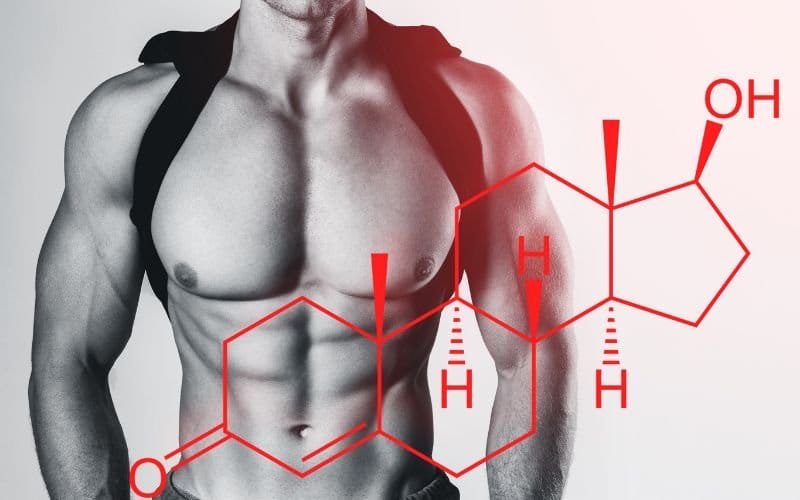
Because testosterone is so closely associated with muscle building and strength, people often confuse the strength-enhancing effects of creatine via supporting ATP regeneration with increased testosterone levels. And thus, a myth is born!
There have been many scientific and medical explorations into creatine use and it’s role in muscle building as well as other effects of creatine in bodily functions.
There have also been studies specifically looking at the links between creatine and testosterone, and in contrast to the points above, there have been some results that suggest a positive correlation between the two.
Under closer inspection however, it would appear that the link between creatine use and boosted testosterone is more indirect than a simple “creatine increases testosterone production” argument.
As stated above, creatine allows the body to work out harder and longer by aiding ATP regeneration. Working out for longer and lifting heavier weights naturally causes a short-term increase in testosterone to support the body in pushing its boundaries.
Without this small testosterone increase, it would be much harder to do weight training or high-intensity training for very long without losing stamina.
This short-lived testosterone boost is commonly thought to be as a result of increased creatine intake, however it is more accurately just a natural biological reaction to having your muscles and organs pushed further than they’re used to.
The bottom line: The body does experience a temporary testosterone boost when exercising hard or weightlifting, however this would happen regardless of additional creatine intake.
Linking back to the question of whether creatine causes increased testosterone production, there’s another common misconception that creatine is an anabolic steroid. People who believe that creatine boosts testosterone levels often also believe that it is a steroid.
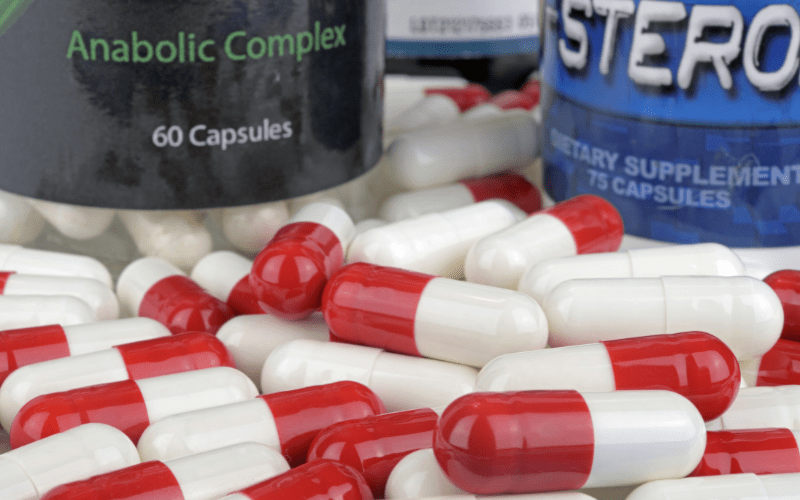
What these people fail to realise is that creatine does not stimulate testosterone production or imitate the hormone itself in order to enhance physical activity and aid muscle building, but rather helps muscle cells to perform at higher levels for longer.
The distinction between creatine and anabolic steroids therefore, is clear: steroids mimic testosterone which promotes muscle growth whereas creatine gives muscle fibres more energy so that they are able to work out harder and grow more organically.
Dehydration is a commonly purported side effect of creatine supplements, however, is there any truth to this claim? The answer can easily be found by looking at how creatine reacts with the body.
Creatine alters the way in which the body stores water, helping to direct more water to the muscle cells as they are being used more intensely. This redirection of water is potentially what many people perceive to be a dehydrating effect when in reality, it’s such a minor change that the effects on bodily hydration are negligible.
There are no studies that have been able to prove that creatine has dehydrating effects.
The same argument is often used to back up the assertion that creatine supplements cause muscular cramping, however, for the same reasons, this is also unfounded. Water and electrolytes are also key factors in cramping, but creatine does not negatively affect either.
Creatine is one of the most widely used performance-enhancing supplement on the market and as such, has been extensively researched and developed. A possible side effect that many creatine supplements warm of is digestive trouble, however when it comes down to it, this risk only materialises if you exceed the maximum recommended dose.
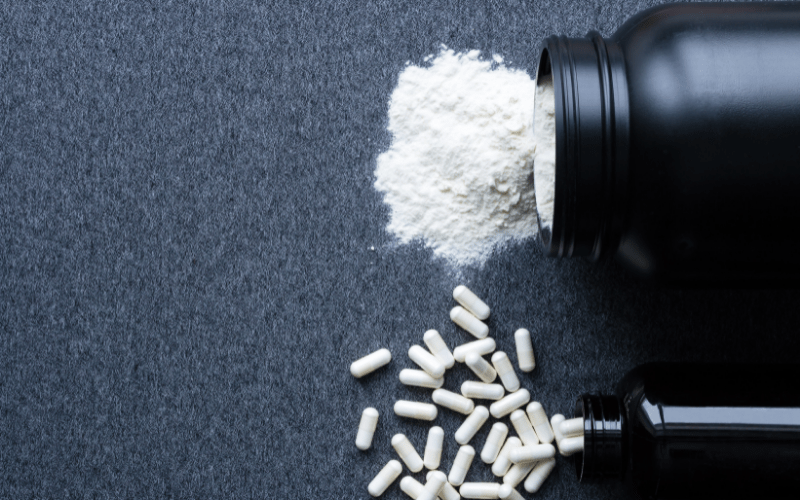
Similar effects would be felt after taking too large a dose of many other medications and health supplements. Creatine on its own is not responsible for causing problems with digestion, the trouble comes in if someone abuses it.
If you’re unsure of what sort of dosage is appropriate for you, or if you’re taking other medications or supplements that might present a contraindication, your best bet is to speak to your doctor for advice.
Although creatine can be a helpful partner in sustained workouts, bodybuilding, and other feats of athleticism, it can also be your perfect beach body’s enemy if used incorrectly. Weight gain is another widely listed side effect where creatine supplements are concerned and unfortunately, is quite common.
It’s completely normal for your body weight to increase when you’re working on building muscle and getting stronger, and this will almost certainly be the case if you take creatine supplements. This weight gain will be due to increased muscle mass rather than having more fat, which is good news.
If you’re taking creatine supplements without working out enough to build muscle appropriately though, this is where you may run into unwanted weight gain that’s unrelated to muscle growth.
Because of creatine’s ability to increase the water storage capacity of muscle cells, if you do not work out, this water is retained by your muscles which results in more weight without muscular enhancement.
Water retention in muscles can also lead to your muscles appearing saggy and feeling soft or squishy rather than being defined and firm. Word to the wise – if you’re going to increase your creatine intake, make sure you lift heavier weights and workout harder than before.
As the body assimilates creatine, any leftovers which are not required by the body for energy production take the form of organic compound creatinine which is simply a by-product of creatine itself. This creatinine is then redirected to the kidneys via your blood to be filtered out.
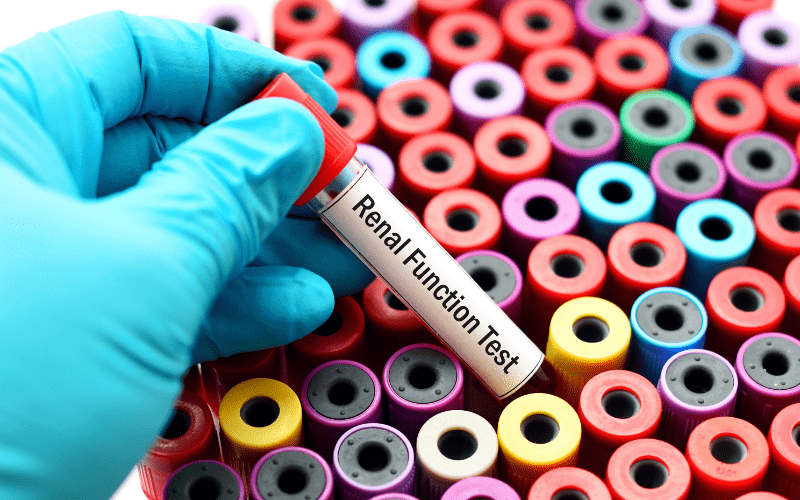
If you exceed the recommended maximum dosage, or use creatine in other irresponsible ways, you could risk overloading your kidney with creatinine, which in itself may not be directly harmful to your kidneys, however it could mask other kidney issues that would then be much harder to detect.
So while creatine has never been proven to be directly problematic for renal health, high levels of creatinine being processed by the kidneys may inadvertently shield other kidney illnesses which may result in you not realising you could need treatment.
Although a creatine product itself will not result in increased testosterone levels, if you’re worried that your body is reacting in an undesirable way and you want to monitor your testosterone production, here are some key signs to look for which may point to excessive amounts of the sex hormone:
This is not an exhaustive list of excessive testosterone symptoms but if you are worried about any of these happening to you, contact your GP.
Taking creatine supplements outside of what your body naturally produces and what you get from food will not cause a surge in testosterone.
Many people believe that creatine is harmful for various reasons but as you can see from the above arguments, majority of the risks associated with creatine use can be mitigated by using your common sense and acting responsibly.
For an exploration into some of the other issues commonly associated with creatine supplementation, check out this article on creatine and drug testing.